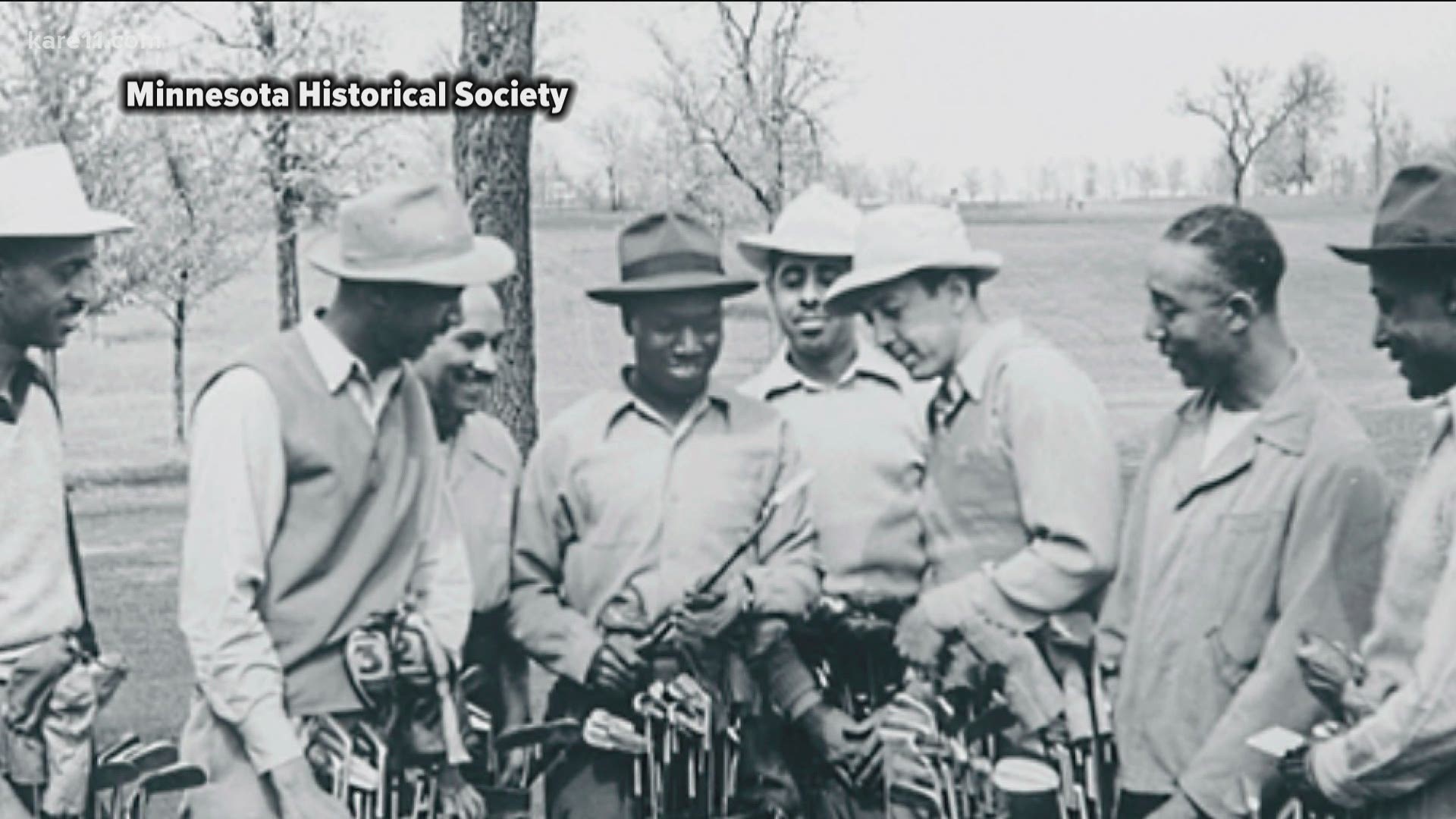MINNEAPOLIS — Solomon Hughes's passion in life was golf. He loved playing it, loved teaching the sport and loved walking the courses to study the topography.
And now, 34 years after his death, the name of Solomon Hughes will grace the clubhouse at his favorite local links, the Hiawatha Golf Course.
"I think his number one love was golf, number two was probably mom and we were probably number three," Shirley Hughes said with a laugh Friday as she looked at her younger brother Solomon Hughes Jr.
The Minneapolis Park Board's decision to rename the clubhouse for Hughes is especially fitting because he's the one who fought to integrate the clubhouse in 1948. Hiawatha was a public course, but years after it opened to Black golfers the clubhouse was still off limits to them.
"People of color who could play on the course earlier in the days and could not come in the clubhouse, so we are very proud to have that legacy extended to the clubhouse," Sol Jr. told KARE.
The Hughes family welcomed Park Commissioner LaTrisha Vetaw's resolution to rename the clubhouse.
"I think he’d feel honored, and I’d think he’d believe his efforts in 1948 to finally get Blacks to come into the clubhouse had been recognized."
Hughes grew up in Alabama and was introduced to the sport while working as a caddy at a local club. By the time he arrived in the Twin Cities in the early 1940s he already had many United Golf Association tournament victories under his belt.
The UGA was the league formed by Black golfers in the 1920s because they weren't allowed to play alongside white men in PGA events.
"The PGA rule had a written rule that only Caucasians could play in the PGA," Shirley explained.
Her father battled to integrate the PGA and drew press coverage after being denied entry into the St. Paul Open in 1948 and 1951. Hughes and renown Black golfer Ted Rhodes were finally allowed into the St. Paul Open in 1952.
"I can't think of one instance where he came home and was disgruntled or mad because of the way he was treated and I believe in his spirit he let his clubs do the talking," Sol Jr. remarked.
Shirley said her father had a gentle persona but was determined to see those barriers fall for Black golfers.
"The other thing I like that people always said about him was not only was he a good golfer, but he was always described as a gentleman, which makes us doubly proud," Shirley said.
Among those who also lobbied on behalf of opening the PGA was heavyweight boxing champ Joe Louis, who learned the sport from Hughes and befriended the family. Louis wanted Hughes to travel around the country from tournament to tournament with him.
"Daddy knew that Mom wouldn't want him traveling around the country, so he did recommend his friend Ted Rhodes. And that worked out well."
Hughes had worked as a Pullman Porter when he first arrived in Minneapolis in 1943, but eventually became a skycap for Northwest Airlines. But he kept golfing whenever he could, and Hiawatha was the public course nearest the family's south Minneapolis home.
"He used to get up on at 6:00 a.m. every Saturday to practice. I caddied for him as young kid, 19 years old, with the original leather bag which was very heavy!" Sol Jr. recalled.
And although he carried heavy bags all day at the airport for customers, he still was able to win trophies in his spare time.
"Mother would say she was a golf widow," Shirley explained. "He would come in late, and she’d say, 'What took so long?' And he would say, 'We decided to play 36 holes rather than 18'!"
Sol Jr. still has his father's personalized golf bag, many of his clubs and his last pair of golf shoes. He's also got clubs his father cut down to size to make it easier for his son, who was of shorter stature, to swing.
Solomon Hughes Sr. died of multiple myeloma in 1987. And even though his hospital room looked out over the Meadowbrook Golf Course in Hopkins, he still asked his family to drive him back to take one last look at Hiawatha shortly before he died.
"He wanted to see both the front nine and the back nine, so I think it’s really fitting for the clubhouse to be named after him because clearly he considered Hiawatha his home course," Shirley said.
And what would he think about being honored by the Park Board?
"Up in heaven he’d probably still be looking over the course, seeing how it’s constructed," Sol Jr. remarked. "And he would be interested in people’s grips and how they’re standing!"

